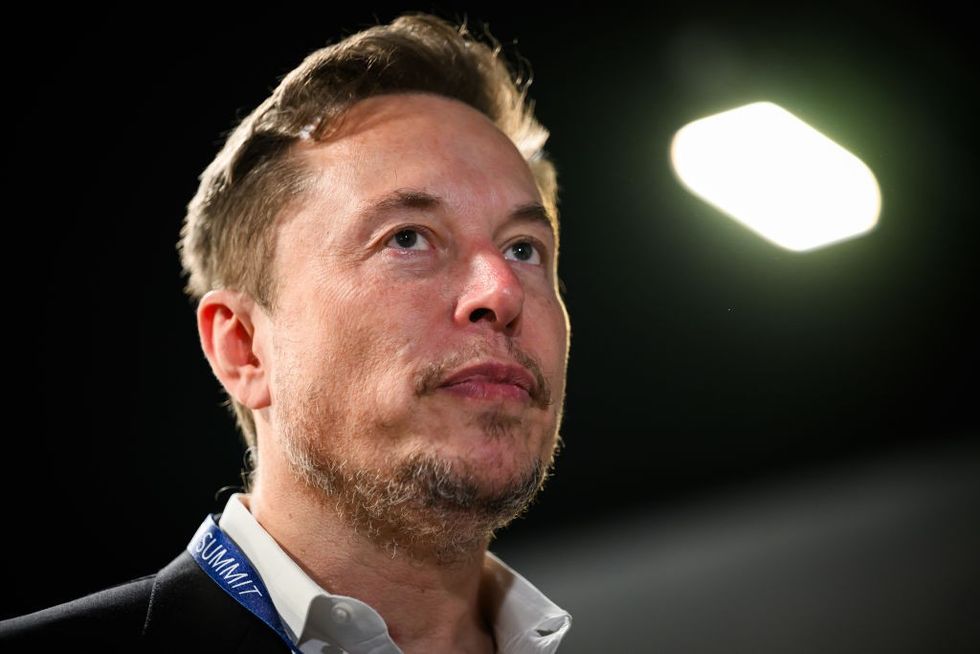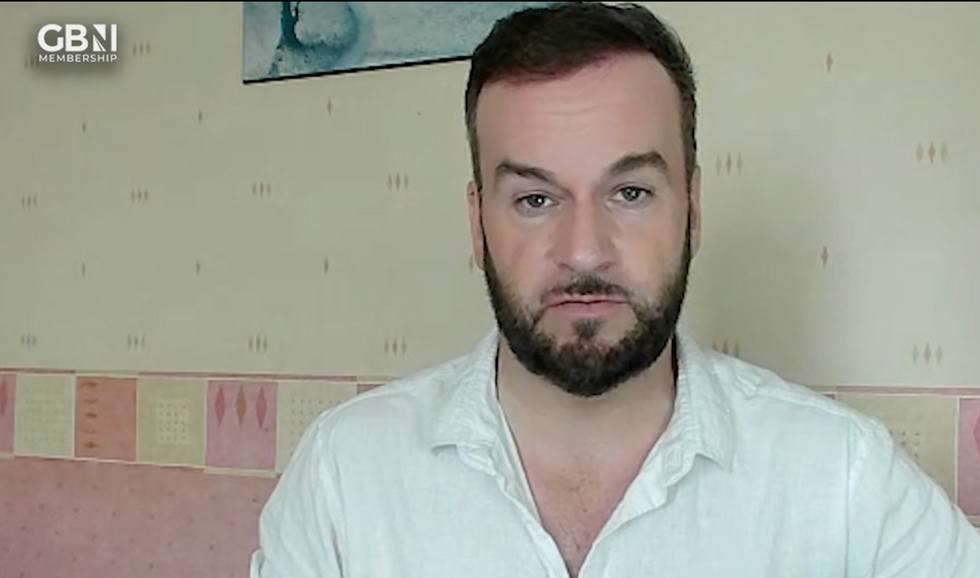Don't Miss
Most Read
Trending on GB News
Calls to subject social media platforms to an Ofcom-administered kitemark have been branded a "censorship crusade" on free speech.
ITN's Chief Executive recently advocated the move as a "counterbalance" to the misinformation which spread online following the tragic murder of three young girls in Southport on July 29.
Misinformation about the suspected stabber's identity sparked a wave of unrest across the UK.
X owner Elon Musk added fuel to the fire by posting the hashtag #twotierKeir, a nickname used to suggest that Prime Minister Sir Keir Starmer presides over "two-tier policing" - the claim that white Britons are treated more harshly than immigrant communities, a claim the PM vehemently denies.

ITN's Chief Executive cites Elon Musk's comments on the riots as further evidence of the need to clamp down
GettyTraditional media has long argued that social media platforms wield considerable influence over public opinion and should therefore be held to the same standards.
Calls to tighten the screws have got louder in recent years as tech platforms have grown in size and deployed ever-more sophisticated and inscrutable algorithms that steer users towards divisive content.
The last few weeks have made this argument unassailable, claims ITN chief executive Rachel Corp.
Writing in Broadcast magazine, she said: "The UK’s public service broadcasting system, regulated for impartiality by Ofcom, has long provided reliable and essential information, a counterbalance to partial commentary elsewhere. It aspires to offer the public a balanced view of the world, upholding high standards through legislative commitments. While social media amplifies diverse voices, it must also ensure access to trustworthy information.
"ITN advocates for an Ofcom-administered kitemark, using the Online Safety Act as a template, to compel major platforms to highlight reliable news sources. This would help counter misleading content online and ensure quality journalism remains easier for audiences to find."
The ITN exec continued: "The regulations placed on broadcasters protect audiences and guarantee high-quality content. We must not let these protections be eroded because social media platforms don’t always take accountability for the content shown on them. Just as television was acknowledged for its ability to reach and influence mass audiences, policymakers must similarly address the immense power of the platforms in this new media landscape.
"The comments by Elon Musk claiming that 'civil war is inevitable' in the wake of rioting in the UK demonstrate the need for such intervention, and it is encouraging to see our new Prime Minister condemning such an inflammatory statement."
The move does not sit well with free speech advocates.
Spiked Political Editor Brendan O'Neill tells GB News that establishment media no longer has a monopoly over the media landscape and will pull any lever to take back control. This poses a "huge danger" to us all, he claims.
"It's a really dangerous road to be going down. They're [establishment media] on the hunt for so-called misinformation, which really means different people who don't hold the same views as the old establishment. Those engaging in wrongthink," he told GB News.
The Spiked Political Editor is adamant that people "must not fall for the idea" that this is "just about cleaning up the public realm and keeping people safe", claiming that the "censorship crusade" does not want us to be exposed to "heretical ideas" that run counter to their narrative.
As he points out, these ideological battles have been fought throughout history: "It was always presented as a public good, but in truth, it's always a crusade to control the flow of information and the flow of ideas. And that's what's happening now."
Brendan likens it to when the printing press was invented in the 1400s and 1500s. The old monks, who used to be the "guardians of information" and the only people who could publish books, "went nuts", he explains.
"They couldn't believe it. They were worried that all sorts of heresies and misinformation would be published, and a lot of heresy and misinformation was published."

The Spiked Political Editor is adamant that we must not fall for the idea of regulating the internet
GB NewsHowever, as Brendan points out, the net benefit of the printing press was "immeasurable".
"For the first time in history, you could publish your ideas and sell them to people. It was revolutionary. The internet age has had an even bigger impact because now anyone in the world can use their thumbs to write down an idea and press send," he explained.
According to the Spiked Online editor, this "freaks out the rulers of society, especially the old media and the old political class" who had a monopoly on what we were allowed to know and what we were allowed to think about the world, adding: "That monopoly is falling apart very fast, and it worries them enormously. They see social media as a challenge to the moral authority of the mainstream media. And that's why they're attacking it."
Cracking down on the internet also poses a direct threat to independent media, such as GB News, which has grown a formidable following online, Brendan claims.
Indeed, our CEO Angelos Frangopoulos recently spoke about the dangers of bringing Ofcom regulation online, claiming it would undermine free speech and new media.
Such a move runs counter to GB News' Editorial Charter, which enshrines the right to free expression and independent thought.
Speaking to the House of Lords in March, Angelos argued that extending the regulatory framework online would be a "great challenge, and would create a two-level market and put British media websites and British media content online at a disadvantage to international organisations, which would not have that same challenge".
That is not to say we should let social media off the hook. In a recent YouGov survey, seven in ten Britons agreed that social media platforms did a poor job handling the spread of misinformation as rioters took to the streets.
Two-thirds of Britons (66 per cent) said social media companies should be held responsible for posts inciting criminal behaviour during the recent unrest.
However, diagnosing the problem is one thing, solving it is another. We suggest treading lightly.





